Women in Kalobeyei, Turkana West, Embrace Kitchen Gardens to Improve Food Security and Resilience
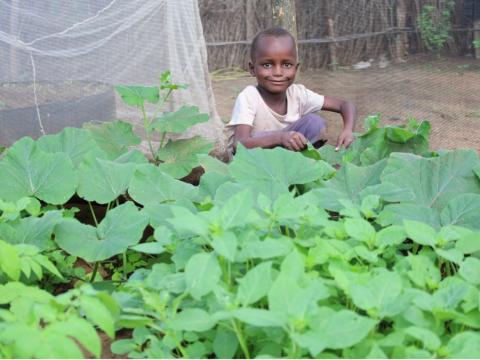
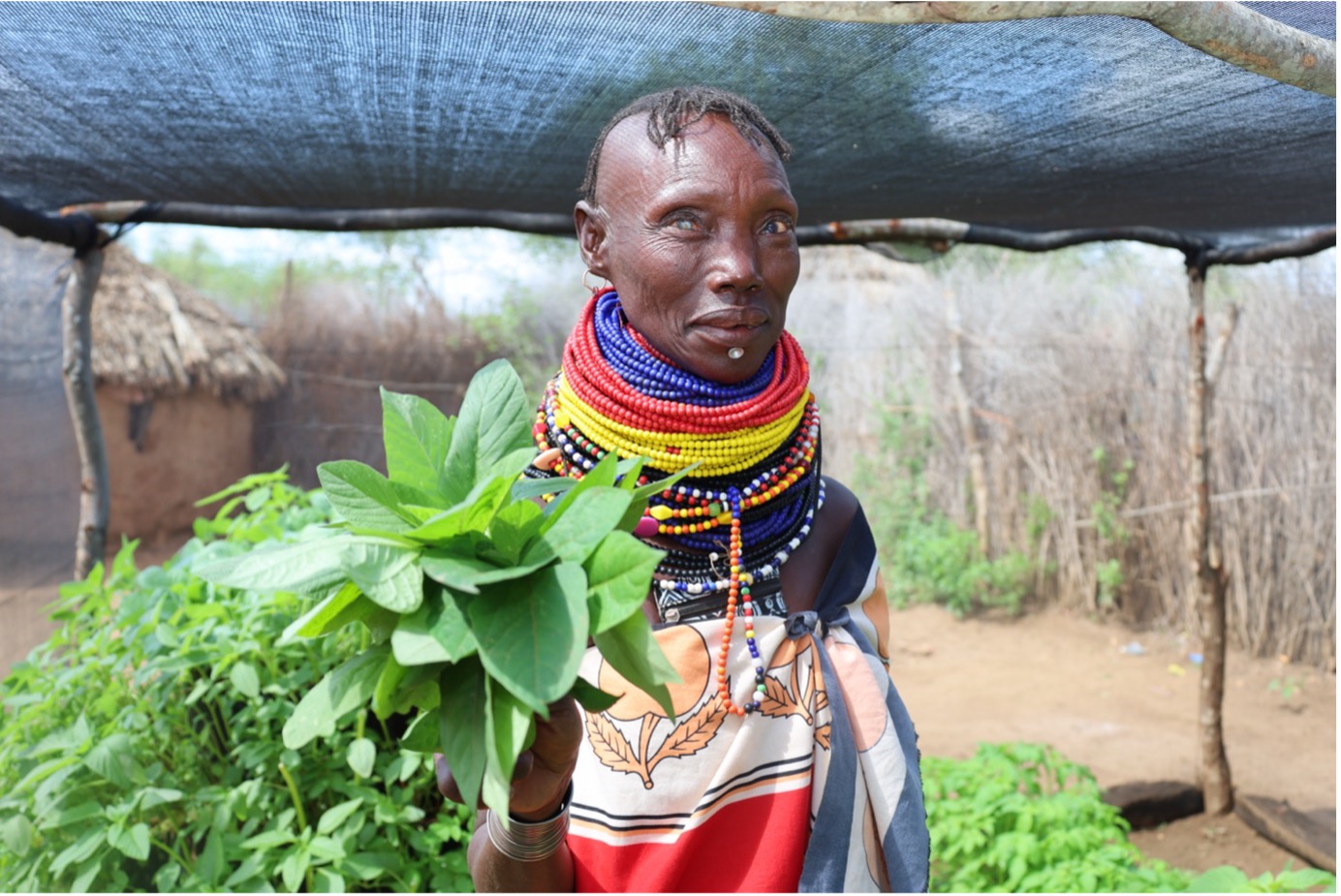
Whenever there is a climate hazard, women suffer disproportionately. The United Nations Development Programme indicates that women and children are 14 times more likely to die in natural disasters than men.
Prolonged drought due to climate change and the porous security situation in northern Kenya resulting from conflicts over scarce pasture and water along the border of Kenya and South Sudan have forced women in Turkana West Sub-County to take the lead in livelihood diversification.
As the impacts of climate change continue to take a toll on communities in Kenya’s arid and semi-arid lands (ASALs), the story of Lotukoi Lominyo—a 46-year-old widow from Oropoi village in Turkana County—serves as a stark reminder of the urgent need to build resilient communities. Lotukoi is visually impaired, having lost one eye, but her story continues to inspire many women.
Traditionally, the Turkana community practiced nomadic pastoralism and relied on livestock for their livelihood. This dependence makes them vulnerable to climate-related disruptions and ethnic tensions over scarcity of natural resources.
Ever-changing climate patterns have disrupted agricultural systems, decreased crop production, and led to food shortages across ASAL counties in Kenya. With limited access to life-changing opportunities and resources, vulnerable women and children in Turkana are disproportionately impacted, a situation exacerbated by the harsh environmental conditions.
According to the 2022 Kenya Demographic Health Survey (KDHS), the stunting rate of children under 5 in Turkana County stood at 23 percent. The World Health Organization (WHO) defines Stunting as the impaired growth and development that children experience from poor nutrition, repeated infection, and inadequate psychosocial stimulation.
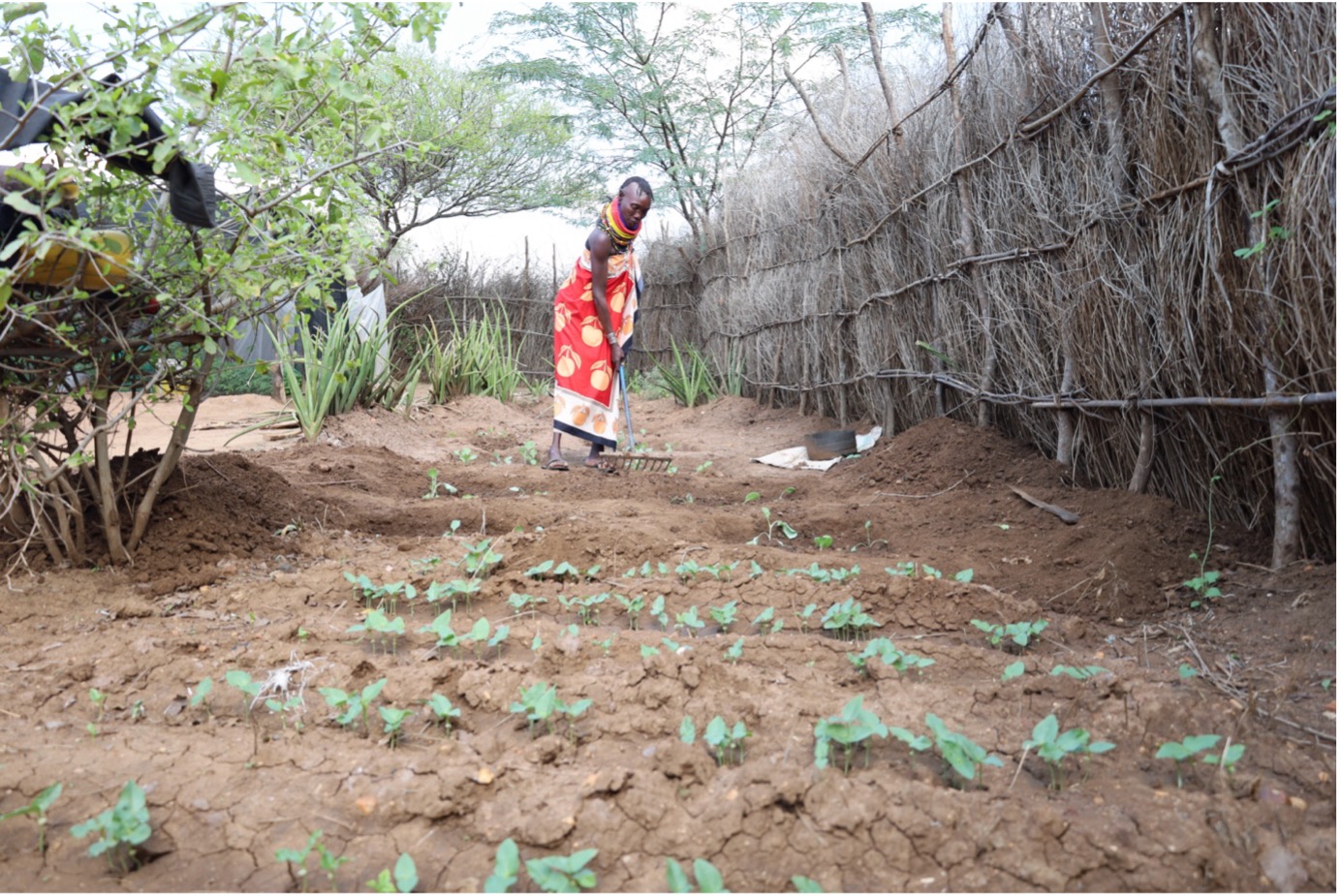
Persistent droughts killed livestock, increasing poverty levels and making it difficult for families like Lotukoi's to survive. This left her struggling to provide for her four children, aged 17, 12, and five. “Keeping livestock is no longer tenable for us,” she says. “The unforgiving droughts and emerging livestock diseases wiped out my animals, leaving me with nothing. Keeping my children in school was difficult because I had nothing to sell.”
Despite these challenges, Lotukoi has emerged as a resilient woman. Her life has transformed, and her household has ENOUGH food, thanks to the climate-smart agriculture technologies and other interventions introduced by World Vision in her community.
Since February 2022, World Vision, through the Kalobeyei Integrated Drought Emergency Response and Management (K-DREAM) Project funded by the Korea International Cooperation Agency (KOICA), has partnered with the Turkana County Department of Agriculture to train over 330 agro-pastoralists in setting up kitchen gardens using climate-smart agriculture technologies.
Lotukoi is among the 330 agro-pastoralists trained and supported with tools and seeds to start kitchen gardening. She happily says, "We have been trained on crop production, equipped with seeds for planting, and supported with farm inputs including shade nets, hoe, machete, spade, rake, and watering can to grow vegetables in the kitchen garden. These trainings have empowered us to be self-reliant and more resilient, even in the face of the drought that affects us."
After the training, World Vision provided drought-resistant seedlings for kitchen gardening, enabling the farmers to diversify their sources of income beyond traditional livestock keeping, which was vulnerable to incessant droughts.
Samuel Muhoro, a World Vision Monitoring and Evaluation Officer based in Kakuma, emphasizes that the project aims to enhance the adoption of agriculture and pastoral technologies to tackle climate change, which has taken a toll on communities in Turkana West Sub-County and other regions.
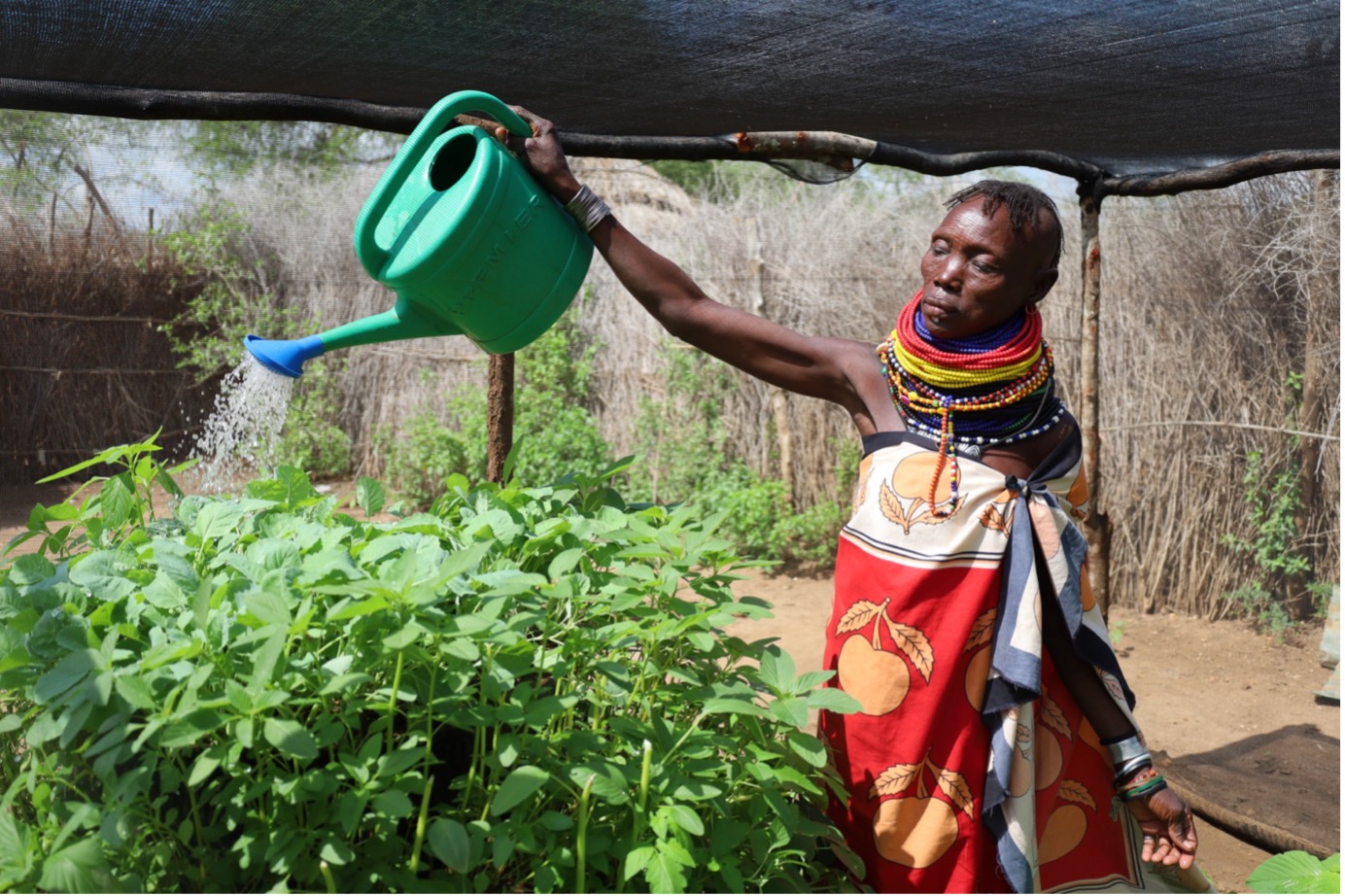
On a hot afternoon, Lotukoi cultivates a section of her quarter-acre farm, where she has planted cowpeas, known locally as kunde. Her smile reflects the hope these women have placed in farming—a new practice in their community. Women like Lotukoi have struggled to provide nutritious meals for their children. This is because buying vegetables was expensive, costing them at least Ksh. 100 (almost one dollar) daily.
"Sometimes, we used to eat food without vegetables because we didn’t have money to buy them, missing out on a balanced diet and our children becoming an easy target to diseases. This is a thing of the past in my family," she reports.
Adjacent to her farm is a kitchen garden where she had planted nutritious vegetables, including black nightshade, butternuts, collard greens, green grams, onions, pumpkins, spinach, and tomatoes. Her 11-year-old child, Ikasukoot, walks around their garden, beaming with happiness. Ikasukoot is assured of a balanced diet and enough food of nutritional value.
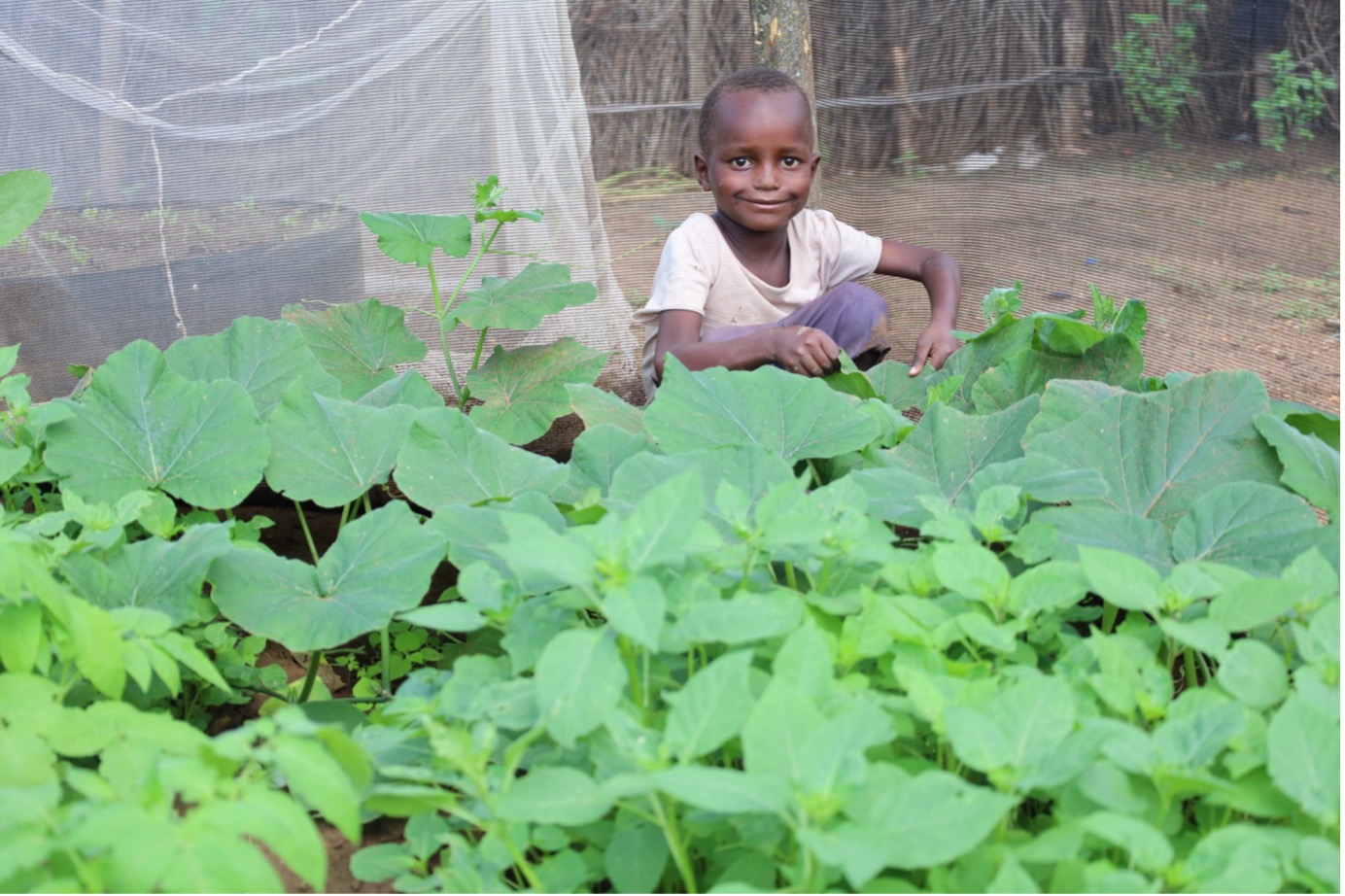
Beyond modern farming practices, World Vision's Empowered World View training—a behavior change model that addresses dependency mindsets and promotes individual empowerment among people living in poverty—has changed Lotukoi's mindset.
"As a widow and a disabled person, I thought I was poor and almost gave up on life. But through the training, we discovered that we could use available resources to change our lives—to transform our hearts, minds, and pockets. I realized our land was an underutilized resource." Such training propelled her to start farming.
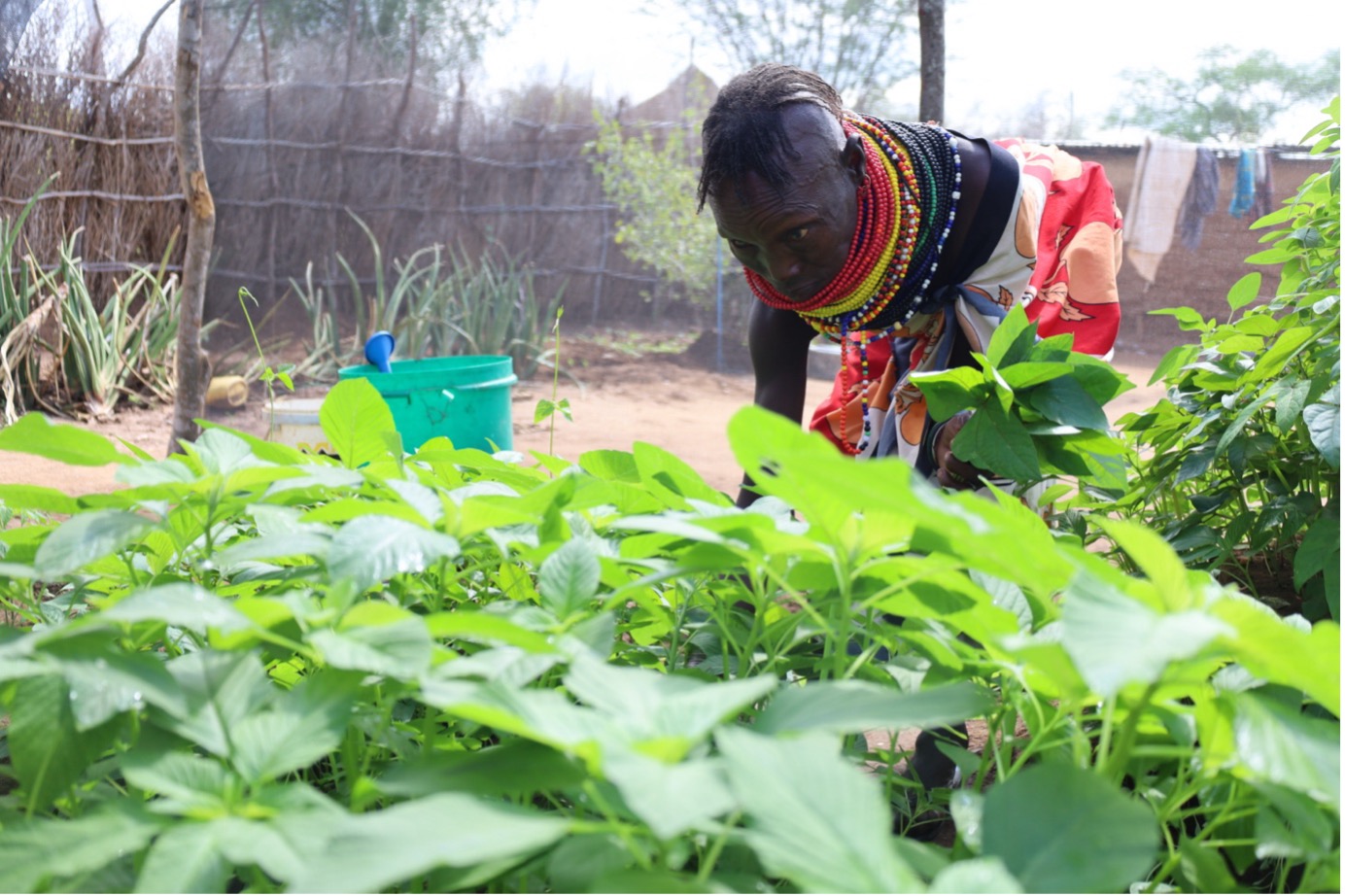
Today, Lotukoi's children are healthier due to a consistent supply of nutritious food, thanks to the K-DREAM Project. "Even if a drought came and wiped away livestock, I wouldn't be depressed again because I have an alternative means of survival. The support I have received from World Vision reminds me that I am not alone. I have enough food for my children and can sell the surplus to pay their school fees."
Water scarcity remains a significant challenge in this area, discouraging many from farming. However, World Vision, the government, and other agencies are working to provide water through targeted interventions. Despite these efforts, the growing population means more resources are needed.
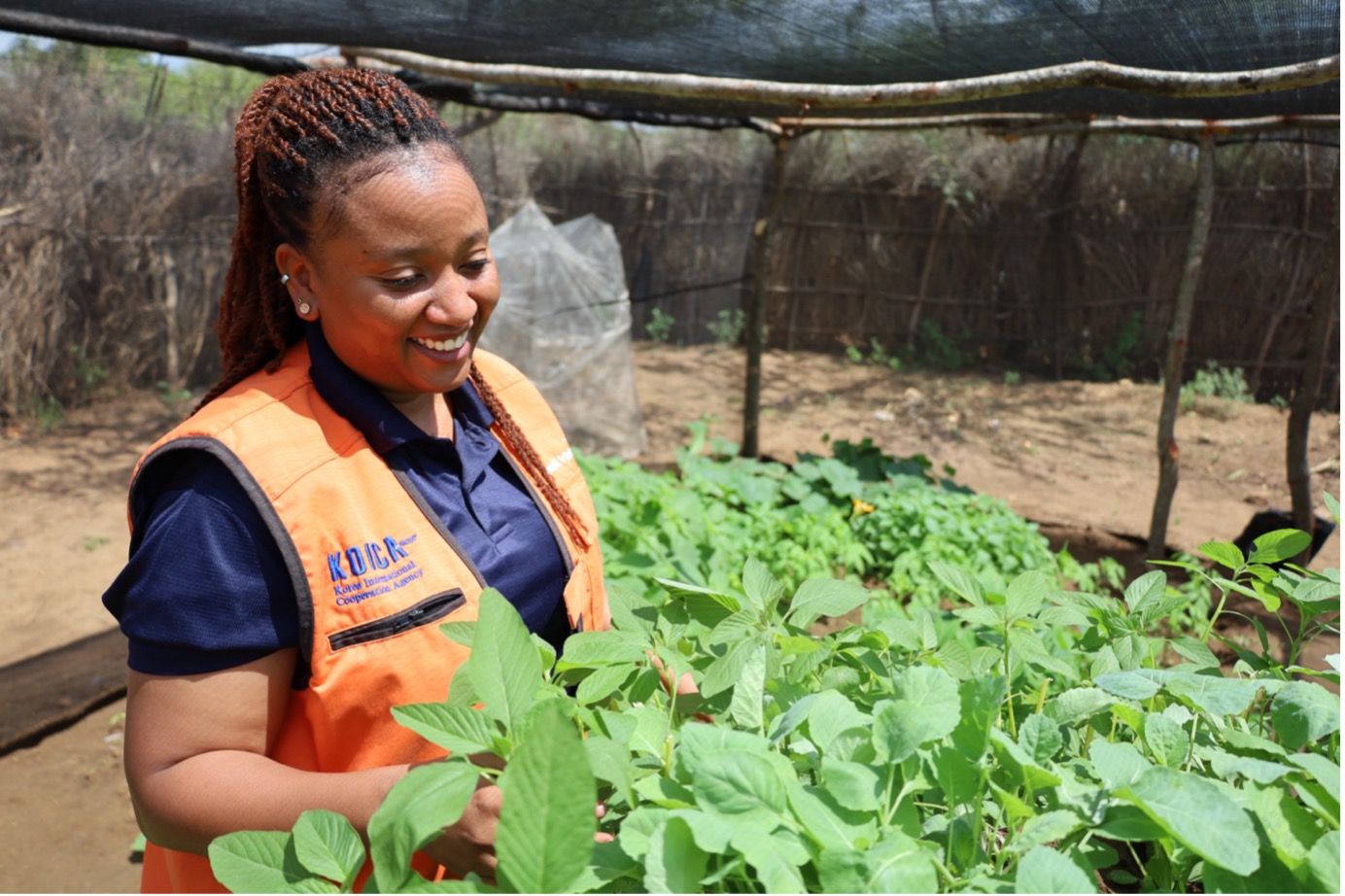
Sheila Kishoyian, a World Vision Project Officer, reports, “We are making significant impact on the community's food production and sustainability.” She adds, “By teaching community members about climate-smart agriculture and water efficiency technology, we enable them to use the limited water resources in their kitchen gardens to produce food for themselves and their families.”
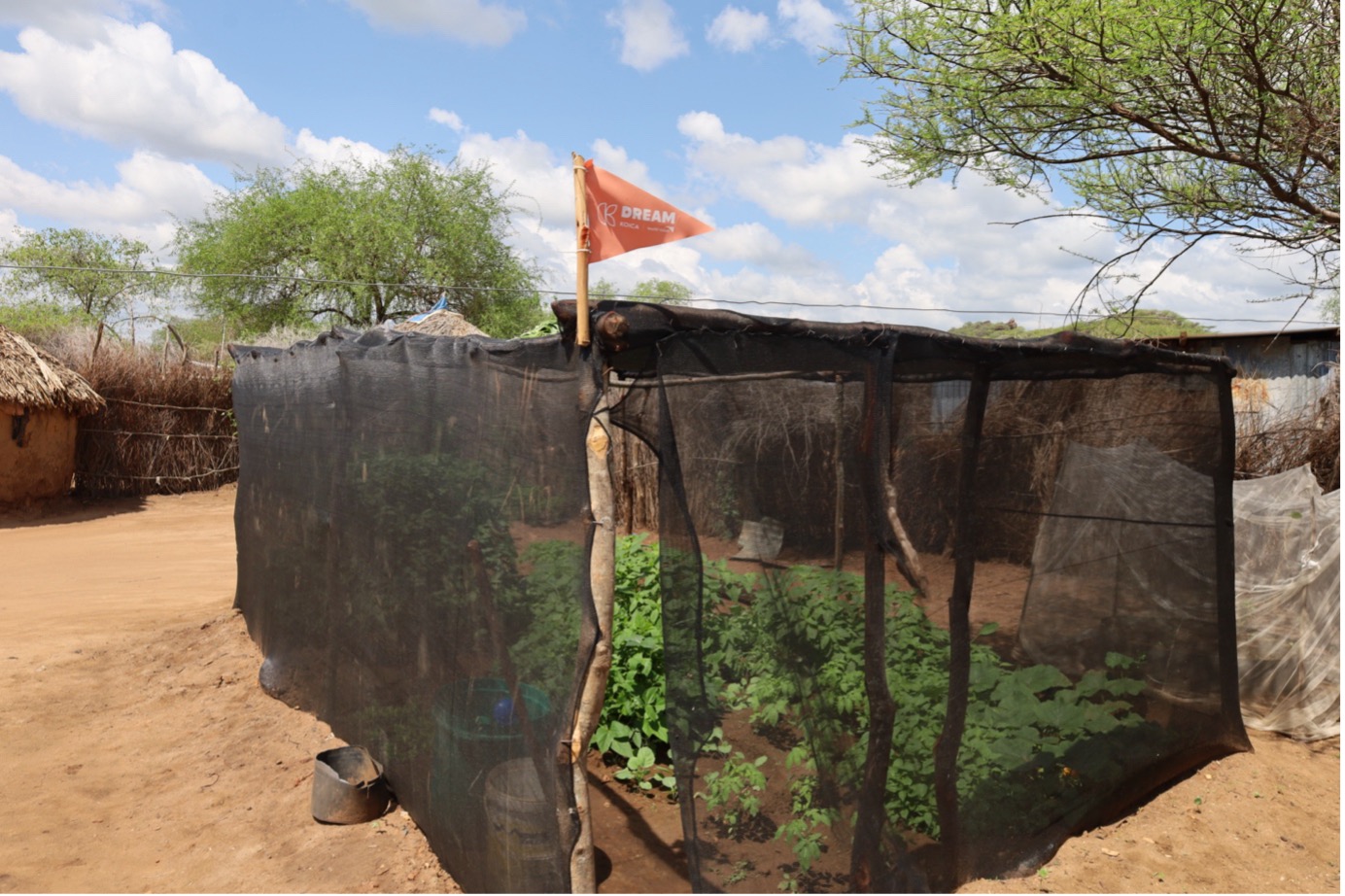
As a person with a disability, Lotukoi faces challenges fetching water from nearby points to irrigate her kitchen garden and other domestic uses. She often struggles to carry heavy loads and sometimes falls. Nevertheless, she remains determined. "Even with my disability, I cannot cry over challenges or beg for assistance. I know I am a solution to the challenges confronting my community."
Lotukoi hopes to expand her farming efforts and establish a commercial kitchen garden to earn more income. "Initially, I was unsure whether farming would be successful, but I am reaping the benefits and encouraging my neighbours to venture into farming today." Her story is a testament that communities can thrive even in the face of adversity.
By Felix Pilipili, Communications Specialist, World Vision Kenya